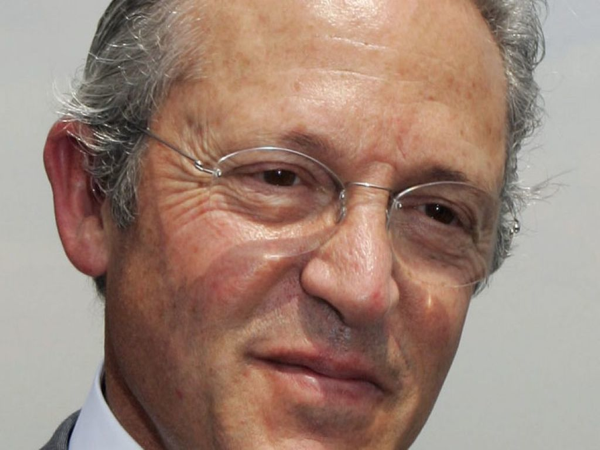Galleries
Guy Wildenstein’s $600 Million Tax Evasion Trial Kicks Off
The dealer faces up to 10 years in prison if convicted.

The dealer faces up to 10 years in prison if convicted.

Eileen Kinsella

The trial of international art dealer Guy Wildenstein kicked off in Paris Monday as the 70-year old scion faces charges of tax fraud and money laundering. French authorities are demanding roughly $602 million in back taxes.
The proceedings will undoubtedly be closely watched in the art world, particularly for what they might reveal about the longtime art dealing family’s fortune, including priceless paintings, along with major real estate holdings around the world. French authorities allege that Guy and his late brother Alec (he died in 2008) intentionally grossly undervalued the estate and started to hide assets after their father Daniel passed away in 2001.
“Mr Wildenstein denies any form of guilt and will account for his actions before the Court,” said Hervé Temime and Eric Dezeuze in a statement sent to artnet News. “He has already presented a draft of his defense that explains both why he is not liable for the taxes recovered and demonstrates his absolute good faith. He reserved his explanations to the Court.”
Wildenstein is known to own paintings by artists including Claude Monet, Pierre-Auguste Renoir, Caravaggio, Pablo Picasso, Pierre Bonnard, and Diego Velazquez. Wildenstein and his relatives are thought to have used a complex series of trusts in tax havens around the world, in order to conceal a large part of the family fortune from tax authorities.
According to reports, the charges initially stemmed from a family feud, wherein two relatives tipped off authorities about the family’s financial dealings. The trial is expected to take up to a month and Wildenstein faces up to 10 years in jail if he is found guilty of the charges.
The so-called hidden estate included properties in New York and the Virgin Islands, according to The New York Post, as well as art galleries including New York’s Wildenstein & Co., race horses, thoroughbreds and companies “dealing with their exploitation,” a private jet, and a 75,000-acre ranch in Kenya where parts of the historic film Out of Africa, were filmed.
The Post says the case was opened after Guy’s stepmother Sylvia, now deceased—who was married to his father Daniel—as well as his sister-in-law Liouba Stoupakova, brought documents to French authorities because both feared they would be shorted or swindled on the will.
Liouba is also a defendant, along with Alec’s son, Alec Jr., and three tax lawyers, the latter of whom are charged with helping in the fraud and money laundering.
The Guardian called it “the saga of one of the biggest art-dealing dynasties, known for its staggering collection of Old Master painting as well as its fraught family battles, including one ex-wife who was said to have spent vast amounts on plastic surgery to look more like a cat.”
The latter is a reference to Jocelyn Wildenstein, the former wife of Alec, who was sometimes referred to as “Cat Woman” or “The Bride of Wildenstein.” Her bizarre appearance and their protracted divorce battle in the late 1990s was the source of much tabloid fodder.
The Guardian report says the family is known in French art world circles simply as “les W.”
In all, authorities have estimated that the estate should have been valued at around $670 million, rather than the $44 million declared in 2002. At that time, in order to help satisfy a $19 million tax bill, the family handed over some bas-reliefs that had been sculpted for Marie Antoinette.
Guy had said there was no legal requirement to report trust assets on his father’s death. He reportedly said during an interview with Paris Match that he knew his father had used trusts but was not aware of the details since he was not a tax or financial specialist.